About half of all people don’t take medication like they’re supposed to– Eric Topol, American cardiologist and scientist
In the bustling world of healthcare, standard medication control and administration stand as the bane of well-being. Meet Emma, a diligent nurse committed to ensuring the safety of her patients. In the heart of a modern hospital, she navigates through a sea of medications with a keen eye and unwavering responsibility. Every dose dispensed is a potential lifeline, and Emma understands the importance of her role. Armed with knowledge, she follows strict protocols to safeguard against errors. Double-checking labels, verifying patient identities, and precisely measuring each dose, she upholds the principles of responsible medication administration. One day, a critical case unfolds. Emma faces a high-pressure situation, but her training kicks in. She administers medications with calm precision, sparing her patient from potential harm. Her diligence doesn’t end there; she monitors for adverse reactions, ensuring the prescribed treatment aligns seamlessly with the patient’s needs.
In this tale, medication control emerges as a narrative of responsibility and care. Emma’s commitment echoes the broader commitment of healthcare professionals worldwide. Through their conscientious practices, they weave a safety net, safeguarding the health and well-being of those in their trust. Each measured step in medication control narrates a story of dedication, illustrating how responsible practices serve as the cornerstone of a healthier, happier future.

Medication, in general term, refers to substances used to diagnose, treat, cure, or prevent disease. The administration of medication is a critical aspect of healthcare, demanding meticulous control to ensure efficacy and prevent potential harm.
Understanding Medication
Medication encompasses a diverse range of substances, from over-the-counter pain relievers to prescription antibiotics. Its primary purpose is to alleviate symptoms, manage chronic conditions, or cure illnesses. Medications can be administered through various routes, including oral tablets, injections, topical creams, and inhalation, each designed to achieve optimal therapeutic effects based on the nature of the condition.
The Need for Control in Medication Administration.
Ensuring the safe and effective use of medication is paramount, prompting the need for stringent control in its administration. A controlled process minimizes the risk of adverse reactions, drug interactions, and unintended consequences. This involves a combination of factors such as accurate diagnosis, proper prescription, careful dispensing, and precise administration.
Right Persons to Prescribe Medication.
The responsibility of prescribing medication lies in the hands of qualified healthcare professionals. Physicians, nurse practitioners, and specialists possess the necessary education, training, and experience to assess medical conditions, identify appropriate treatments, and prescribe medications tailored to individual patient needs. The prescription process involves a comprehensive understanding of the patient’s medical history, potential allergies, and existing medications to avoid adverse reactions.
Right Persons to Administer Medication.
Administering medication requires a skill set distinct from prescribing. While some medications can be self-administered by patients following proper instructions, others necessitate the expertise of trained healthcare professionals. Nurses, pharmacists, and medical assistants are among those qualified to administer medication, ensuring that the prescribed treatment is delivered accurately and safely.

Dangers of Self-Medication
Despite the availability of information on various medications, self-medication poses significant risks to individuals’ health. Inappropriate self-diagnosis, incorrect dosage, and lack of awareness regarding potential drug interactions can lead to adverse effects. Additionally, individuals may not consider underlying health conditions or allergies, exacerbating complications. The increasing accessibility of over-the-counter drugs further emphasizes the importance of responsible medication use.
Adverse Effects of Medication Errors
Medication errors, ranging from prescription mistakes to administration mishaps, can have severe consequences. These errors may result in ineffective treatment, exacerbation of symptoms, or adverse reactions. In extreme cases, medication errors can lead to hospitalization or, in rare instances, be life-threatening. To mitigate these risks, healthcare systems globally implement stringent protocols and technologies to enhance medication safety.
Technological Advancements in Medication Control
Technology plays an important role in advancing medication control and administration. Electronic health records (EHRs) streamline communication between healthcare providers, reducing the likelihood of prescription errors. Automated dispensing systems in pharmacies enhance accuracy in medication dispensing, while barcode scanning during administration ensures that patients receive the correct medications and dosages.

Patient Education and Empowerment
One of the essential components of medication control is patient education. Healthcare providers must empower patients with knowledge about their prescribed medications, including potential side effects, proper administration techniques, and the importance of adherence to prescribed order. This proactive approach fosters a collaborative relationship between healthcare professionals and patients, promoting responsible medication use.
Regulatory Measures to Ensure Medication Safety
Governments and healthcare regulatory bodies worldwide implement robust measures to oversee and regulate medication control. Stringent licensing requirements for healthcare professionals, ongoing education and training, and routine inspections of healthcare facilities contribute to maintaining high standards in medication administration. These measures aim to create a framework that safeguards the public against potential risks associated with medication use.
Conclusion
In summary, control and administration of medication are integral components of modern healthcare, demanding precision, responsibility, and collaboration between healthcare professionals and patients. Understanding the meaning of medication, recognizing the need for control, identifying the right individuals to prescribe and administer medications, and acknowledging the dangers of self-medication are crucial steps toward ensuring the safety and efficacy of therapeutic interventions. By embracing technological advancements, fostering patient education, and implementing robust regulatory measures, healthcare systems can continue to evolve, minimizing the risks associated with medication use and maximizing positive health outcomes.
At Balance of Creation we believe in professionalism, we can create a world where every learner is seen, heard, and celebrated. We have an array of over 80 healthcare courses, including our specialized Learning on Control and Administration of Medication. These courses are well crafted and delivered by experienced healthcare professionals, designed to assist you in achieving your learning objectives related to control and administration of medication as a healthcare practitioner. Visit us at https://www.balanceofcreation.online to explore our courses and take a decisive step toward enhancing your understanding and capabilities in the realm of administering medication.






